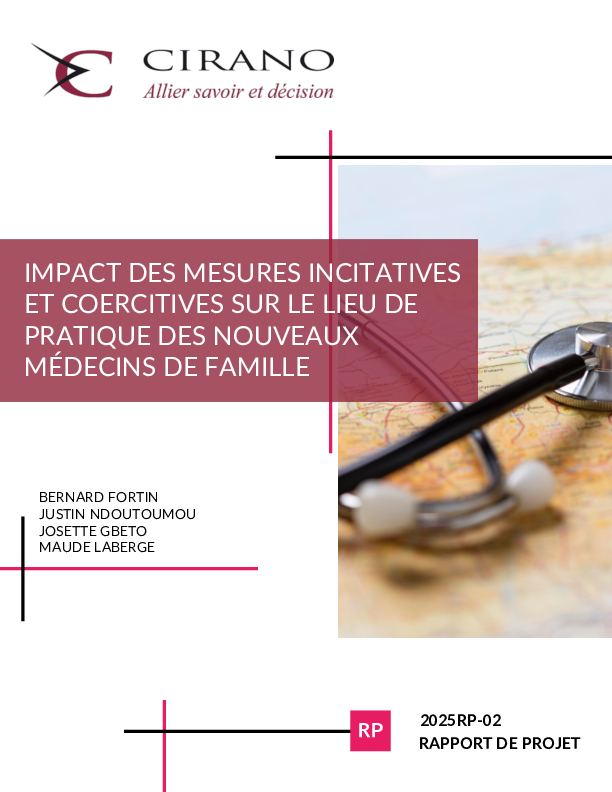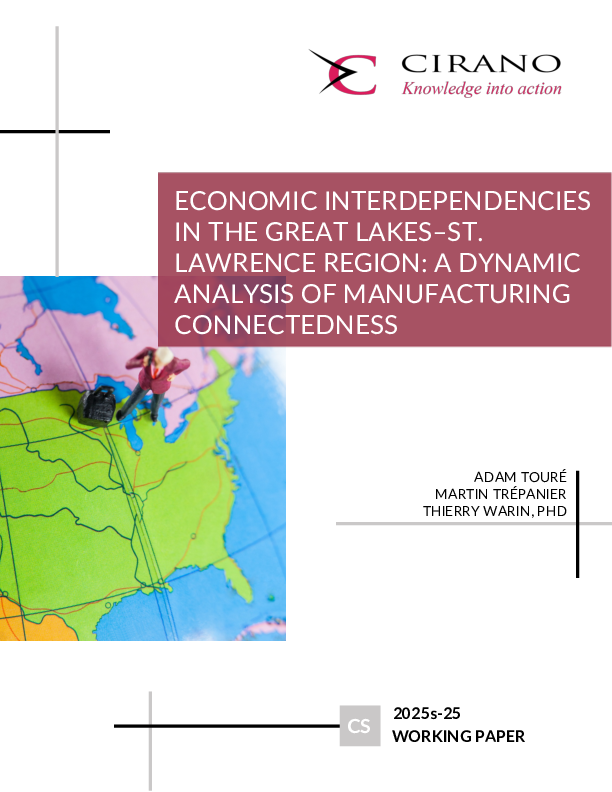Impact des mesures incitatives et coercitives sur le lieu de pratique des nouveaux médecins de famille
→ Read the article in the journal PERSPECTIVES
Primary care is an essential component of healthcare for the population. In a region with a severe shortage of physicians, the risk of not being able to access appropriate care in a timely manner can lead to severe health problems, particularly among vulnerable individuals.
As early as 1975, the Quebec government introduced several measures to influence the choice of region of practice for general practitioners and improve equity in their geographic distribution. Some of these measures are incentive-based. They include bursaries, differential compensation by region, installation bonuses, isolation bonuses, and retention bonuses. Other measures are coercive. In 2004, Regional Medical Workforce Plans (Plans régionaux d’effectifs médicaux or PREMs) were introduced. Under the PREMs, any new physician wishing to install in a region of practice must obtain a compliance notice from the regional department of general medicine where they wish to settle. This notice can only be issued if the PREM target has not yet been met. PREMs were made even more restrictive in 2015.
Using a rich and unique dataset, the authors estimate the causal effects of three measures aimed at influencing the choice of region of practice among new family doctors in Quebec between 1975 and 2021. They show that bursaries, differential compensation by region and PREMs appear to have achieved the intended effects.




